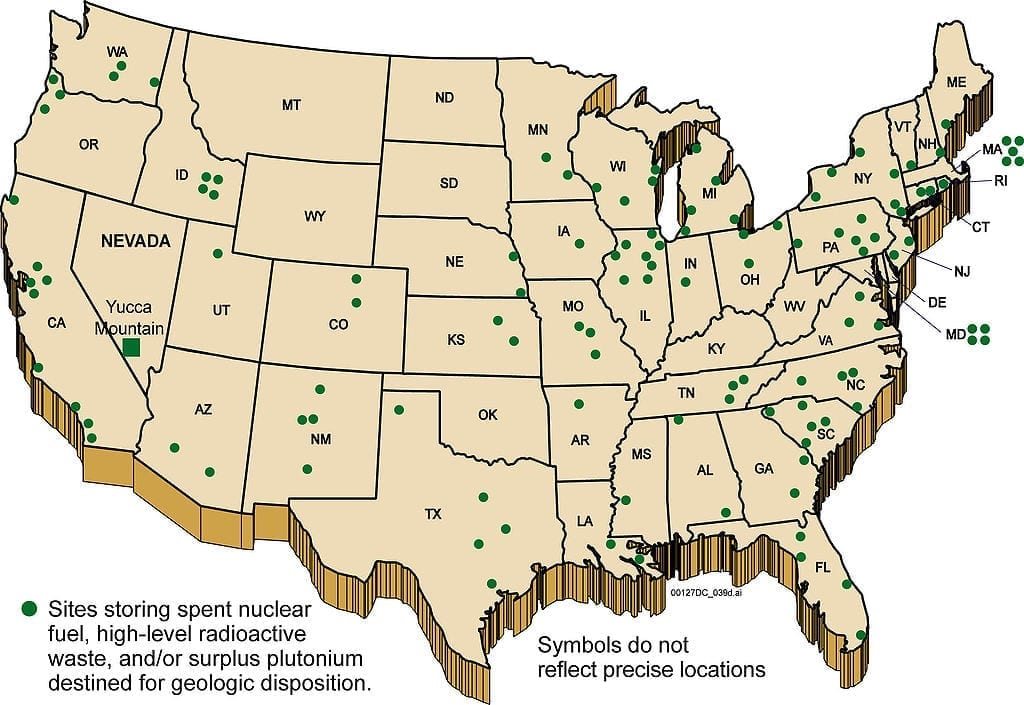Cleaning up messes is expensive, but people want cheap stuff. It’s cheaper for companies to let us pay the cost less directly, via subsidies and suffering.
We want everything we want, we want it cheap, and when we’re done with it, we want it to go away quickly, and to stay away forever. Unfortunately, life doesn’t work that way. Often, “away” simply means “left in somebody else’s backyard,” and buried secrets have a way of coming to light. Also, in the effort to produce goods and make them go away cheaper than the competition can, companies can become ruthlessly efficient at making someone other than their customers pay the cost. Sometimes, this means taxpayers subsidize the business, such as through government-funded cleanup of Superfund sites. Other times, it means that people living near disposal sites have measurably worse health outcomes. Any way you slice it, being able to externalize the costs of doing business makes it cheaper for companies, but bad for you.
In the suburbs of St. Louis, MO, the 200 acre West Lake landfill complex sits among affordably priced homes and slowly sickening residents. Underground, the Bridgeton landfill portion of the complex has been smoldering since around 2010 and it’s not going to stop anytime soon. The heat from the flameless burn has been speeding up the decomposition of trash at the landfill, resulting in an abundance of hellish, rotting odors that fill the air, and so much toxic leachate that it’s hard for the facility to keep on top of the cleanup effort.
What’s more, less than a quarter mile north of the permanent dump fire lies an immense pile of radioactive waste that dates back to the Manhattan Project. During WWII, the Mallinckrodt Chemical Works in St. Louis obtained and processed tens of thousands of tons of uranium, including material for Little Boy, the bomb that the United States dropped on Hiroshima in 1945. Contaminated waste from this and other processes was transported, uncovered, across the countryside, stripped of any useful mineral residues (such as copper) that may have remained, mixed with 39,000 tons of dirt and illegally dumped at the West Lake complex. Apparently, careless and illegal waste disposal is cheaper for companies than taking responsibility for their messes.

Now, we have what’s essentially a vast underground dumpster fire threatening a nuclear waste Superfund site in a developed area, near a major city. It’s in an unlined landfill on a floodplain in an area prone to tornadoes, but the best plan that the EPA and Republic Services, the company responsible for the site, can come up with is to cover the toxic area with several feet of crushed rock and concrete, clay and topsoil. That may keep the smell down, but it doesn’t really solve the problem of keeping the fire and the radioactive waste separate, nor does it treat the nearby residents, including children, who have come down with brain and lung cancers, leukemia, and asthma. This solution, though, is cheaper for companies than relocating tons of soil (or lots of people) to other, presumably safer, sites.
Nor is this the EPA’s (or Scott Pruitt’s) only ongoing concern. Along with everything else, Maryland’s Attorney General Brian Frosh is suing the EPA for failing to stop 36 power plants in nearby states from emitting air pollution that drifts over the Maryland border. Plants in Indiana, Kentucky, Ohio, Pennsylvania and West Virginia, Frosh claims, are violating the “Good Neighbor” requirement of the Clean Air Act by failing to employ pollution control technology that is already installed at those plants. Despite Maryland’s efforts to make sure state residents have clean air to breathe, it’s probably cheaper for businesses to externalize their emissions than to do the right thing.
All of which brings to mind a statement made by the founder of Dyson vacuums. Nearly thirty years ago, James Dyson read a paper by the US National Institute for Occupational Safety and Health that linked diesel exhaust to premature death in lab mice and rats. Soon, a team at Dyson designed a filter, meant to fit into a vehicle’s exhaust system, that would trap particulate matter. Unfortunately, nobody in the automotive industry was interested in the filter, because disposing of all the collected soot would be too problematic, too expensive. It’s cheaper for companies to let it flow freely, allowing us to “dispose” of it in our lungs.
Related: Government Should Act Like a Business?


Join the conversation!